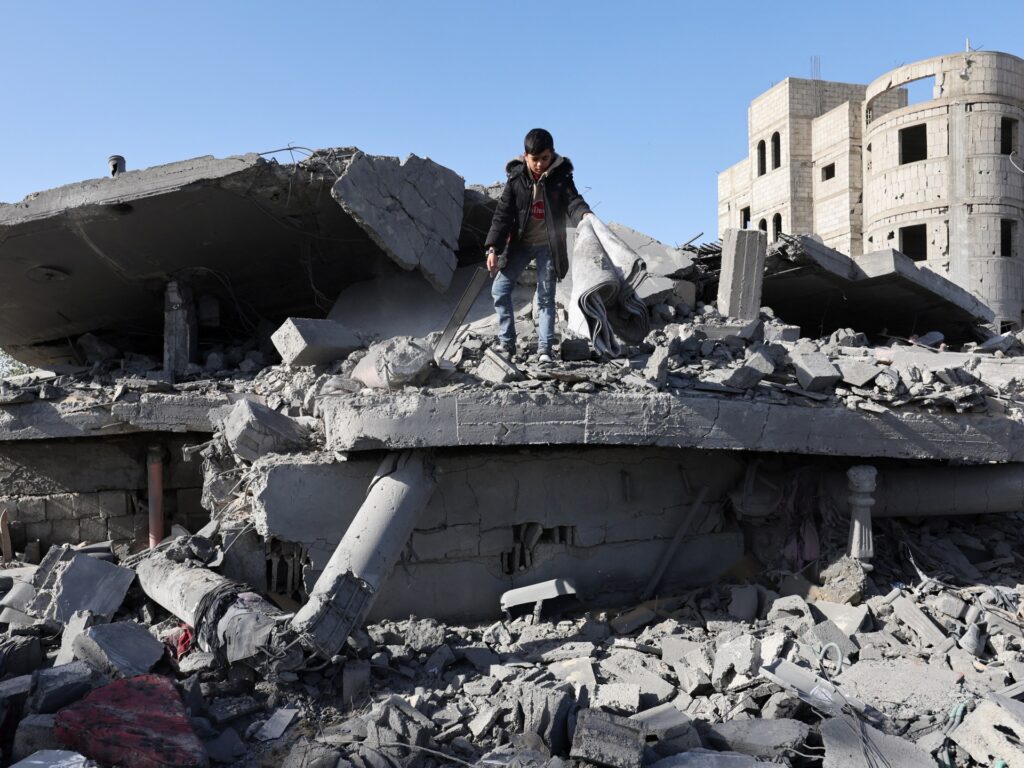The American newspaper “The Washington Post” said that there is evidence proving that the damage inflicted by Israeli forces on Gaza exceeds what happened in other conflicts in the current century, and that this war is one of the most destructive wars.
She added that this war has claimed – so far – the lives of more than 20,57 people, displaced the vast majority of the population, and destroyed large areas of the besieged Gaza Strip.
Perhaps the most ferocious attacks came from air strikes that flattened entire residential blocks and created craters in courtyards and gardens.
The American newspaper stated in its report that it analyzed satellite images, air strike data, and the United Nations assessment of the resulting damage, and conducted interviews with health care providers and experts in munitions and air warfare.
Huge destruction
She explained that the evidence she collected shows that Israel launched its war in Gaza at a pace and level of destruction that likely exceeds that caused by any modern conflict, and this was evident in the demolition of buildings in a shorter time than the devastation caused by the Syrian regime’s battles in Aleppo in the period between 2012 and 2016, and the campaign US-led military forces against ISIS in Mosul, Iraq, and Raqqa, Syria, in 2017.
The newspaper said it concluded that the Israeli army launched frequent and widespread air strikes near hospitals, “which are supposed to be given special protection under the laws of war.”
Satellite images, reviewed by the Washington Post, showed dozens of clear craters near 17 of the 28 hospitals in northern Gaza, the area that witnessed the heaviest bombing and fighting during the first two months of the war. 10 craters indicate the use of one-ton bombs. , which is the largest of its kind in continuous use.
The newspaper quoted the head of the International Committee of the Red Cross, Mirjana Spoliaric-Eger, who visited Gaza on December 4, as saying, “There is no safe area,” adding, “I passed through the streets and did not see a single street that escaped the destruction of civilian infrastructure, including hospitals.” “.
Terrifying numbers
The Washington Post quoted the Ministry of Health in Gaza as saying that the war resulted in the wounding of more than 53,320 people, and the killing of more than 7,700 Palestinian children. Women and children constitute about 70% of the dead, according to the United Nations Office for the Coordination of Humanitarian Affairs, which also says that 1.9 million people have been displaced from their homes, equivalent to 85% of the population.
Michael Lynk, who served as the UN Special Rapporteur on the situation of human rights in the occupied Palestinian territories, said: “The deaths of Palestinian civilians in such a short period of time appear to be the highest rate of civilian casualties in the 21st century.”
The newspaper reported that Israeli Defense Minister Yoav Galant informed his forces on October 10 that they were “liberated from all restrictions” and that “Gaza will never return to what it was.” On the same day, Israeli army spokesman Daniel Hagari said, “We are now focusing on what causes the most damage.”
The Washington Post reported that, over a period of just over two months, the Israeli Air Force fired 29,000 surface-to-air missiles, 40% to 45% of which were unguided, according to a recent assessment from the Office of the Director of National Intelligence.
The Israeli army did not hide that it viewed Gaza’s hospitals as military targets, according to the newspaper, which based this on Hagari’s statement on November 5, in which he said, “Hamas is systematically exploiting hospitals as an essential cog in its war machine.”

